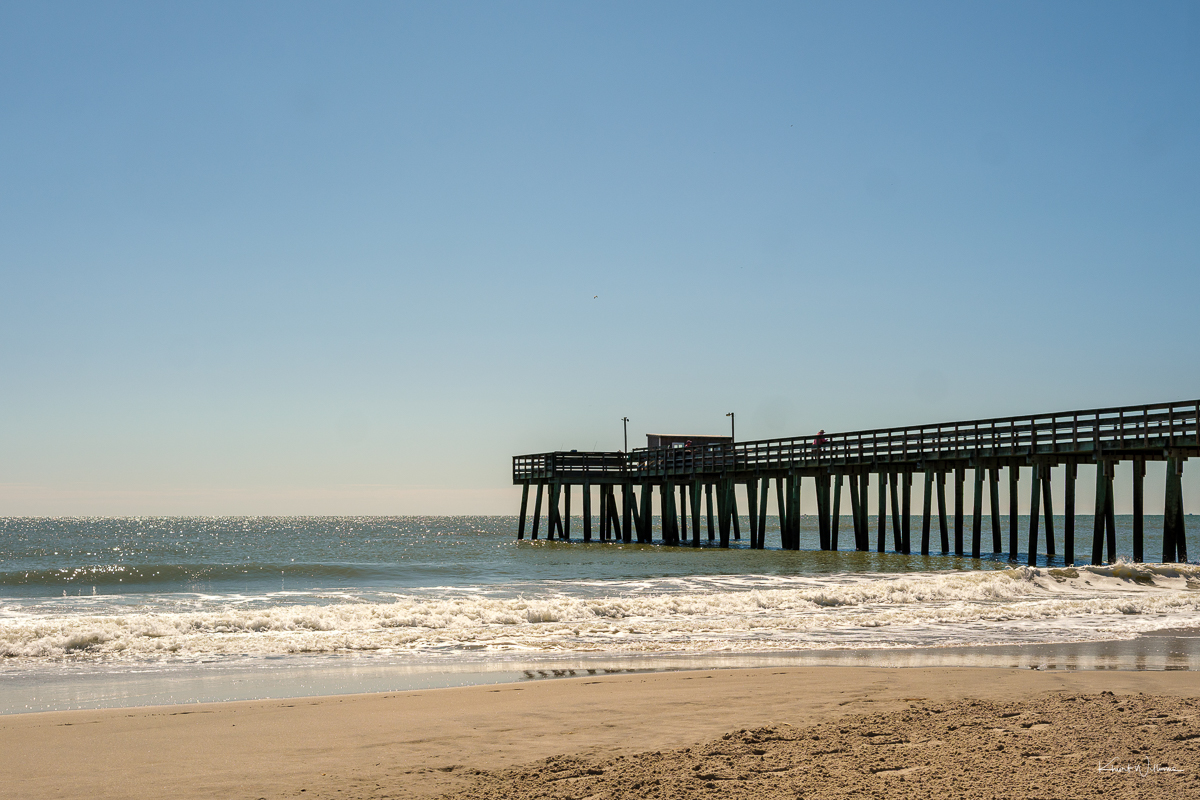By ALEXANDRA LYTTON REGALADO
Excerpted from Drownproofing and Other Stories, a finalist for the Restless Books Prize for New Immigrant Writing 2025.
Dr. Rafael Améndarez
San Francisco, California, United States of America
July 14, 1968
Srita. Liliam Améndarez
San Salvador, El Salvador, Central America
Greetings my always dear cousin, Lili!
Last week I was discharged from the hospital, and considering my life’s current hustle and bustle, just in case, I’ve decided to congratulate you in advance for your birthday. Congratulations a thousand times on that auspicious August 9.
A few days ago, by accident, I came across a letter among old and musty papers. One of those things one keeps without knowing why. Things that are stored away after reading them and are not read again until that day when unexpectedly, by chance, they appear in our hands. Imagine a letter written a whopping two decades ago! Yellowed by the years. A letter from a friend. This one dates back to World War II.
At that time, I was in France with the American army. I remember it was a freezing day, bitterly cold, in January 1944. There in the French Vosges, between Colmar and Strasbourg. That winter I remember vividly because it was extremely harsh. A man could be wounded and freeze within minutes. Climbing a mountain loaded with winter clothing, weapons, and ammunition, one would sweat, and that sweat running down the face, sliding, in a moment when one stopped to catch their breath, froze into ice splinters, which could be peeled off.
For the infantry soldier, and I was one of them, bearing the constant fear of death, there would be no shelter from the elements. We slept in the open, and if a fire was lit, within seconds a veritable storm of shrapnel, the German artillery, fell upon us. I found myself huddled in a hollow or crevice in the terrain, chewing slowly on the classic K ration, which consisted of a tin of scrambled eggs with ham, two dry and very hard biscuits, a compressed fruit bar (to aid digestion), instant coffee, two cigarettes, and toilet paper.
I looked around me; a few meters away was a comrade whose name I still remember. He came from Illinois, Leonard Maynard, and was squatting quietly, defecating, and just a little further away, a corpse shattered by German bombs, completely disfigured. Still, due to the intense cold, the body did not emit the classic sticky sweet smell of the human body in decomposition, yet it was slightly swollen. Its warlike function had ended; a few hours earlier it had been a thinking being, perhaps leaving behind family; who could imagine what his last thoughts were. He was a young man, with red hair swayed by the wind. The snow-covered field was quiet. There were patches of freshly turned earth due to the blow of the explosions. The trees, conifers, felled by shrapnel, seemed cut as if by a huge razor blade.
Frankly, I’ll tell you that I remember precisely the moment, the instant when they handed me the letter. The stamp was from El Salvador. My hands, dirty and cracked from the elements and lack of hygiene, shook tremulously as they took in the message that conjured right there the luminous ether of warm lands, the distant tropics beyond the seas.
The envelope had been opened and resealed by the censor, an anonymous character who snooped into even the most intimate things. I remembered that not long ago, when we passed through Marseille, a comrade had written to his wife indicating that in that city there were thousands of beautiful prostitutes and wanting to justify his prudish position, he wrote: “Honey, you are my only love, my only one.” The censor, a good family man, located the soldier and suggested he could not compare his wife to a harlot, and was thus able to correct the error in time.
Upon opening the letter and reading its contents, I vomited. Not because of the past months’ meager and unappetizing fare, but because of lines that relayed a desperate, pathetic situation, and spoke of the destitution in which my mother found herself, and the costly medical treatment required to remove the series of tumors thickening her gut like knots along a rope. And I could do nothing to alleviate the situation.
I envisioned María Teresa, my mother, an innocent and naive woman, scarcely bordering on sanctity, fever-soaked on a horsehair mattress on a corner cot in a public hospital. My mother, who as a twelve-year-old girl, was photographed in a silk dress and wide-brimmed hat at the port of La Libertad, waving from the mahogany deck of an ocean liner headed to Europe. Her own mother, Eloisa, fell ill with tuberculosis and died before they reached the port of Cádiz. That was the end of her glory days. Mamá Eloisa’s money went to her husband, Federico. And months later, when my mother finally returned with the corpse of Mamá Eloisa to Santa Tecla, her father had already remarried the young and golden-haired Constanza, Mimi already staking claim in her fertile womb, and one year later, Carlos.
My mother was a woman victimized by her own family, her own blood. I saw her immediate family, surrounded by all the fine things that the Good Lord grants to the privileged of this world! I mentally analyzed her stepsister and stepbrother made proud by the power of Mr. Money. All their lives they reigned the fern-lined corridors of the new house, outfitted with hand-painted Italian tiles and gold fixtures, a house that Mother never lived to enjoy, as she was swiftly placed in boarding school, where the nuns of the Sagrado Corazón reprimanded her with licks from a green switch.
Papá Federico, in a constant state of alcoholic delirium, never had a backbone, and when he died, the wealth went solely to Constanza and her progeny. But Mimi and Carlos felt a moral obligation to help Mother, since a large part of their money was ill-gotten from Mamá Eloisa’s estate.
I imagined my “dear aunt” Mimi who had once affectionately embraced me, speaking ill of my vagabond father, making offers to finance my medical studies in San Francisco, which brought me turmoil when she didn’t fulfill her offer after I had left my job on the promise of her loan and then had to abandon my studies and enlist in the Army. I remembered how proudly Mimi had boasted about spending over ten thousand dollars, an astronomical figure at that time, on buying pretty little clothes. Then, her generous impulsiveness when she obnoxiously stuffed a ten-dollar bill into my pocket.
A man has his dignity, and this act was the worst offense of all. I have never accepted money as a gift. I once accepted $100 from my father and couldn’t repay him because he died. I left my home and made my way to the States with $160 as my total inheritance. But those ten dollars of Mimi’s still burn me. It was a humiliating handout. Any other object, a book, would have denoted appreciation, and for that, I would have been grateful.
I remembered my mother’s indignant, reddened face as my father held fifteen-year-old Mimi on his lap, fondling the ribbons of her dress, the pseudo-innocent girl smiling while her brother, Carlos, was distracted by my father’s gun case. Yes, my thoughts turned. My mother once rescued and paid a fine in Guatemala for my father. He was imprisoned due to a lawsuit in a whorehouse. I also remembered the scene at the Hotel Saint Francis in San Francisco, when he was awoken, drunk and naked in the hotel lobby.
My father was a being of great social insensitivity. His Great Danes consumed more meat than the entire population of Santa Tecla. His boasting of being a twenty-year-old man with the experience of a sixty-year-old. His picturesque figure dressed as a charro on horseback, with pistol and saber, I have clear in my mind. My reasoning told me from this character I could not expect the slightest help for my mother. And from other relatives, unthinkable. At a later date, I learned that vilifying and speaking ill of my father was the only way to humiliate him to send money and alleviate my mother’s situation. Temporarily, if so, because after he gambled a bag of diamonds and the title to the house where Mother and I lived, he shot a bullet into his cranium and closed that chapter once and for all.
But on the battlefield, you can imagine my desperation. The circumstances in which I found myself. Blinded. Desert the army, how? Desert, where? We must move forward. That night I went out on patrol, a sleepwalker. We ventured into enemy territory. Our footsteps muffled by the snow. The silence interrupted by the snores of enemy soldiers.
Years have passed, Lili, and I am now a tired, wasted man. Youth abandoned me many years ago. I take stock and find that those ten dollars still weigh on me, because I still have engraved in my mind the impudent gesture when Mimi introduced her handout into my pocket. Here, Lili, I must plead with you, and I know this is asking too much, to return them to Mimi. It would only be a gesture for my inner peace. Then I won’t owe them anything and thank God for that.
The only memory I will keep of them was at Mother’s funeral. You will remember that I could not attend. I had only arrived from the frontlines a few minutes earlier. I was sleepless, eyes red from holding back tears. My heart was shattered! Without asking permission, they showed up in the humble adobe house I considered my home because it belonged to my mother, violating my privacy. I was unpacking. Mimi elegantly dressed in black velvet with a pearl necklace; Carlos, in pinstripes with a black tie. In a pressing manner, rather rude, they reproached me, telling me that my place was to attend to the people who came to offer condolences. I’ll tell you, frankly, I don’t know what happened to me. I was speechless hearing the harsh voices and seeing those people insensitively stepping on letters, photographs, and memories that were scattered on the floor of Mother’s room. Under other circumstances, I would have exploded violently!
There is also a debt to Carlos that I wish to settle. I remember that Mother complained that he had spread word of his magnitude with a story claiming she received a monthly pension from him. My mother was indignant, as it was not true. I believed her and still do. At Mother’s death, Carlos paid for the coffin. On that occasion, I tried very nicely to reimburse him. Dignified, condescendingly, he refused to let me pay for something that was, in fact, very intimate, very personal, the last thing my mother would ever need in this world. At that time, I seriously considered, first, suing him in a civil court to accept the payment of the aforementioned coffin. Second, I thought of exhuming the body and taking the coffin to his residence. I didn’t do it because of you. And the last shred of dignity our last name carries.
Time has passed. I insist that I have to settle this account along with Mimi’s. The first request comes from the heart; the second from pride. You may believe these are the obsessions of a disturbed person. It may be so, but I don’t want to find myself, beyond the ether, having left my mother’s remains imprisoned by the act of a cretin, her stepbrother. My request comes from the soul. If you cannot do it, send a copy of this letter to Victoria, and if she cannot do it, to Roberto, Ricardo, or someone who understands me and I can post them the money. I leave it in your hands.
With this ever and eternal pressure, I would like to rest, but it’s not in my nature. Today, I’m finishing my second round of radiation therapy, and the surgery will happen next month.
Thanks again from your loving cousin who always remembers you.
Abrazos y besos,
Rafael
Alexandra Lytton Regalado (she/her) is a Salvadoran-American author, editor, and translator. Her works include Relinquenda (National Poetry Series, Beacon Press, 2022) and Matria (St Lawrence Prize, Black Lawrence Press, 2017). Her recent work has appeared in Poetry Magazine, New England Review, BOMB, AGNI, and poets.org. She is co-founding editor of Kalina Press (est. 2006), president of the board of directors of the Salvadoran Cultural Institute, and associate editor at swwim.org.
Read more from the Restless Books Prize for New Immigrant Writing 2025 Finalists.










